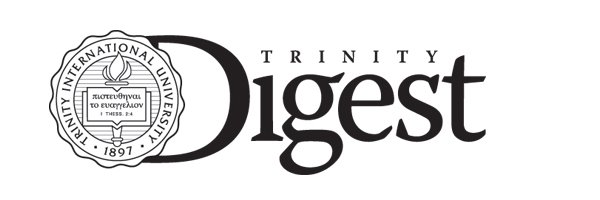 A dietary supplement wholesaler urged the Trinity International University (TIU) women’s soccer team to eat more fruits and vegetables during a lecture Saturday.
A dietary supplement wholesaler urged the Trinity International University (TIU) women’s soccer team to eat more fruits and vegetables during a lecture Saturday.Health professionals and clinical research support the many healthful benefits of Juice Plus (JP), according to a company representative Lynne Page, who gathered the female athletes in the Meyer Sports Complex conference room.
The usual morning soccer fitness testing and indoor practice was lengthened by a yoga session in the foyer with instructor and national ranking triathlete Joann Della Torre, who swears by the dietary supplement. A complimentary fruit buffet was provided at the sales pitch that turned six female athletes into Juice Plus customers – a four-month $39.75 per month commitment.
Juice Plus claims to be the next best thing to fruits and vegetables and does not label it's product as a vitamin supplement. We are a whole food based product providing nutrients found in seventeen fruits, vegetables, and grains, said Page.
In 1992, the United States Department of Agriculture (USDA) released the food pyramid that recommended 3-5 servings of vegetables and 2-4 servings of fruit. In 2005, the USDA released the new “MyPyramid,” which was only a visual redesign of the former— the only difference was the added recommended amount of physical activity.
Juice Plus pushes for 7-13 servings of fruits and vegetables every day, and attempts to link American eating habits to the national rise of cardiovascular disease, cancer and infertility.
Page presented a two-year old MacDonald’s Happy Meal and the only thing to show for its age was the wrinkled and ripped bag. The hamburger bun was absent of mold and the patty had not been decomposed – bacteria won’t eat the fast foods Americans shove their faces with.
Fruits and vegetables, though, are dubbed today’s new fast foods – they are small, easy to pack, and perfect for snacking on between meals.
“Fruits conveniently come in their own natural wrapper,” said Page. The women’s soccer team was delighted to learn that the kiwi fruit skin was edible and healthy, although the texture wasn’t appetizing.
Studies show that people should get their nutrients by eating actual food products and not supplements. Page recognized that incorporating more servings of fruits and vegetables into a diet can be difficult and expensive, especially to TIU students who rely on the food vendor Sedexho as their main food source. Although it is not a substitute for the real thing, Juice Plus serves as a “convenient, affordable, and natural” supplement for the extra needed servings.
TIU men’s basketball Head Coach Marc Davidson has his familyon Juice Plus. His five kids, all under the age of 12, participate in a children’s research program that allows them to take the supplements for free. Davidson and his wife take the capsules while the kids take the gummies and chewables.
“My taste buds have changed and crappy food doesn’t satisfy me,” said TIU Physical Therapy major Laura Della Torre, who has been on JP for three years and became a JP representative three months ago.
Since taking the supplement, Della Torre desires foods rich in nutrition and has experienced an increased energy level. She suffered chronically from Mononucleosis all throughout high school and into her freshman year at TIU, but since taking JP she has been Mono-free.
“Juice Plus in only ten bucks a week,” said Della Torre, “And that’s manageable when you think about all the crap-food you buy in a week.”



